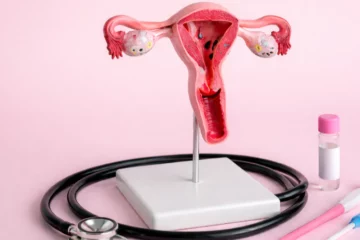The World Health Organisation (WHO) is the principal public health body of the United Nations (UN) and it recently announced it is beginning to take steps to remove being transgender off its classification list of mental and behavioural disorders.
This is a positive move, but I find it hard to be full of applause for such organisations when they make such adjustments. Being transgender should never have been on that list. Being gay was on the WHO list of official mental illness, and was only removed in 1992. I see the removal of transgender from the list not so much a reason to compliment or applaud institutional progressiveness but more a moment of disgrace and institutional shame that it has taken so long to remove.
My experience of being transgender, especially early on, has been one of being spat at in supermarkets when going out to buy bread, of being beaten up in my apartment, of being name called on every single street. Counterintuitively for such levels of hate, being raped and having multiple incidents of unwanted public groping has occurred. Transgender people are reviled and desired, often simultaneously.
It is a Chinese water torture type of effect, the single acts can be coped with and recovered from, but the consistency of public abuse every day, every week, interminably without hope of diminishing, every time one goes outside is where the real damage is done. The inner confidence destroyed. The mental anguish begun. But the abuse is predominantly social and subtle rather than physical and overt. The smirks (or even worse, the ‘liberal’ act of trying to quell the smirk). The social castigation and community ostracism leads to nearly half of young transgender people attempting suicide. It can be a very isolating and lonely state to exist in, particularly if friend and family support evaporates. One becomes a pariah.

Film and media collude in this public perception and treatment of transgender people. Nearly any example you can find will depict transgender people either as an object of mirth to be laughed at, or worse, as a dangerous predator who is mentally ill. I am sceptical, but one can only hope that acts such as the removal of transgender from public mental health lists will assist in changing media perception, prompting a social transition to treating transgender people more fairly and humanely.
The WHO decision was undoubtedly influenced by Denmark’s recent statement that it is “completely inappropriate to call it a sickness” and that it “has no more patience” and would unilaterally take steps to remove being transgender off Denmark’s health ministry clinical guidelines if the WHO did not act before the end of 2016.
Not everyone supports this normalization
The demand for transgender people to remain on the WHO mental illness list does not just come from right wing anti-LGBT conservatives, as might be expected by stereotype. Many transgender people themselves are nervously concerned about the prospect. There’s fear that removal from the mental illness list would cause funding support from national health services to dry up, applicable not just in the UK but globally.
Transitioning from one gender to another costs money. Costs include laser hair removal, hormone therapy, surgery and psychiatric assessment. In the UK the national health service (NHS) covers most of these costs, but were being transgender to be removed from the WHO mental illness list, would the NHS still provide support? Should it?
Well, yes, it should. Just because something ceases to be considered a mental illness, does not mean that it ceases to be a process that requires help and support. Transgender people’s lives depend on it. A study in the US showed theattempted suicide rate rose as high as 60% when no medical route to transition was available. Added to this is the fact that unemployment and poverty is disproportionately high in transgender people, perhaps due to a combination of systemic discrimination in the hiring process and low self-confidence. If transition costs were institutionally defunded a vicious cycle is created of poverty and unemployment leading to an inability to afford transition, leading to depression and suicide. I understand why some transgender people would rather we stay on these mental illness lists, but would urge them to reconsider.
Daily rags often attempt to stoke hatred of transgender people by pitching the needs of one patient group against another. This is never helpful. In comparison to other NHS treatments the numbers of transgender people are small. Between June 2014 and June 2015, 853 people started on treatments in Scotland. If anger at lost UK revenue is required then let us look to reducing the amount of £43,000 hellfire missiles we fire at children from legally questionable UK drone strikes, or thebillions of pounds lost to tax avoidance by big business. This is a far more constructive use of public scorn and bile than making vulnerable patient group fight vulnerable patient group in a justification of resources.
A person is not mentally ill by being transgender. Not by a long shot. It is really important society moves away from this concept, it is the only way genuine normalisation and acceptance can occur. I have trust that the general public will understand the differentiation that just because a thing ceases to be classified as a mental illness does not mean it no longer requires treatment and care; medically, in the process of transition, but also socially. Even if you disagree with the notion of transgender, just by not spitting at the transgender person on the street, not sniggering when a transgender person gets on the bus, by not staring – you will save lives.
The decision by the WHO will be a good start.
Maybe the media will catch on too.
[Source:- The Huffington Post]




